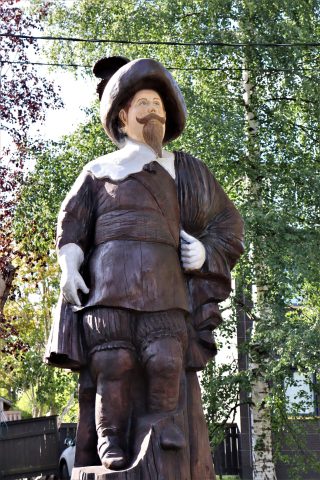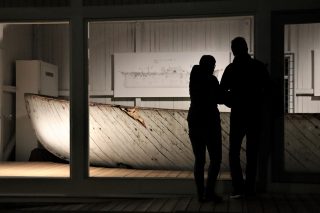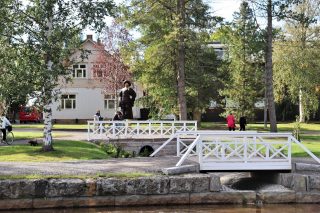Tar was Kokkola’s most important export commodity from the 17th century right up to the 19th. Tar trading was directed to the so-called tar market, where the quality of the tar was inspected. In 1850 the tar market and packing room were moved to the southern end of what is now the English Park. However, because of the high risk of tar combustion and land uplift the operations had to be transferred closer to the sea. In 1895 a park was founded on the site of the tar market. This was named the English Park. An English paddle-box-boat, captured in the skirmish at Halkokari during the Crimean War (1854), is preserved there. It is recognised as the only English Royal Navy landing boat to have been captured in battle currently on display anywhere in the world. Sixteen English soldiers fell in the skirmish and nine of them were buried in the Maria graveyard in Kokkola.
There is also a statue of the doctor and poet Ernst Viktor Knape (by Emil Cedercreutz, 1938) in the park. To the north of the park there is sculptor Ukri Merikanto’s 1994 work “On Land and On Sea” (Maalla ja merellä). To celebrate Kokkola’s 400th anniversary in 2020, the park received a statue of King Gustav II Adolf, the founder of Kokkola. Sculptor Ulla Haglund has carved the statue with a chainsaw.
The Rahm´s House


